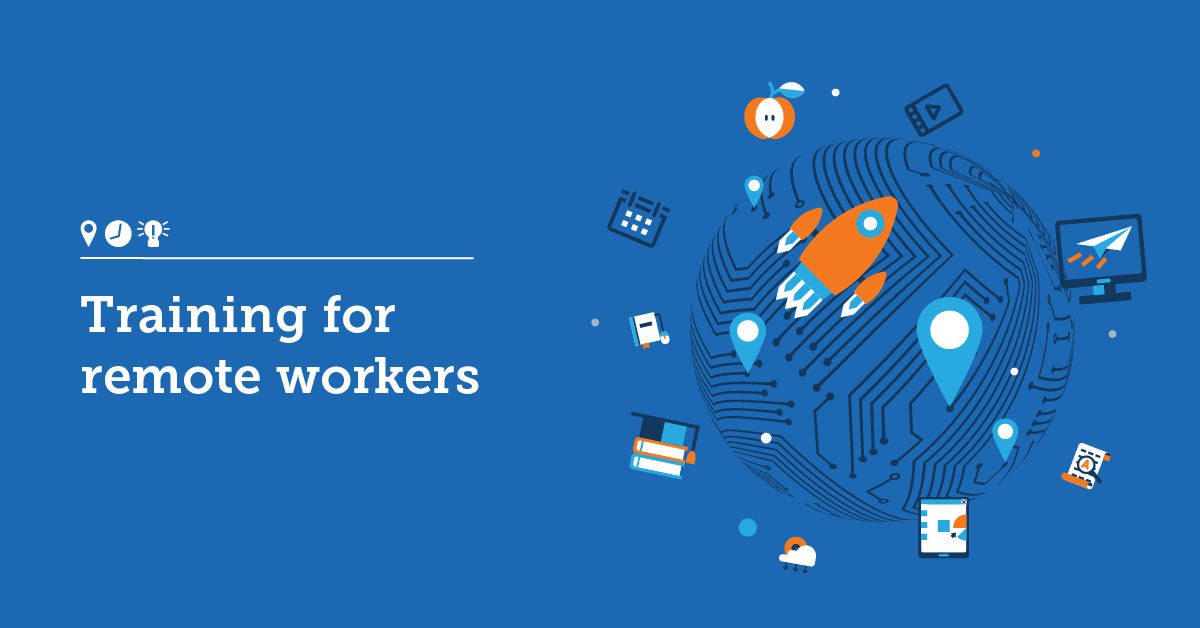From team happy hours to industry networking opportunities, people are itching to get back to interacting in person. Corporate offline events put on hold during the pandemic are making a comeback.
And with them comes a new dilemma:
Should we encourage more in-person events or embrace the new flexible work-from-anywhere mentality?
Let’s take a look at how companies can find the right balance between encouraging in-person events and supporting a flexible work culture. We’ll share some offline event examples to help you plan for success.
Why companies need to find a good balance between encouraging in-person events and supporting flexible work
A return to offline events doesn’t mean you should abandon what you learned from pandemic-era virtual events. There are benefits and drawbacks to both options, so you need to strike a balance between the two.
For instance, in-person events let employees bond, collaborate, and learn new skills. They have a certain energy that online events can’t replicate. They also allow for informal conversations that build relationships.
But they can be limiting for employees who:
- Live and work far away
- Have disabilities that create accessibility concerns.
- Prefer to work remotely
- Have commitments outside of work that prevent them from attending
Employee morale suffers when people feel left out or forced to participate in events they can’t or don’t want to attend. And low morale can lead to disengagement and a decrease in productivity.
Remote events, on the other hand, have opened doors to more inclusion and collaboration for distributed workforces. They give companies a chance to hear more voices. But in some instances, they don’t have the same impact as face-to-face interaction.
The best approach is to take a hybrid view. Recognize when in-person events are necessary or helpful. At the same time, stay open to how events can be more inclusive and accessible for remote employees.

Deliver blended learning programs with TalentLMS
Host and record live training sessions,
and employees won’t miss them no matter where they are.
What kind of offline events work for a post-pandemic workplace?
According to recent research by Gallup, only 21% of workers feel engaged at work. Remote work can leave people feeling distant from your company and their team. Bringing employees back together can help re-engage those who are struggling.
Here are four types of offline events you can plan to help strengthen your team while respecting job flexibility.
1. Team building activities
Offline corporate team-building activities can range from outdoor adventures like hiking or rock climbing to indoor activities like escape rooms or board game nights.
Personal, largely social interactions can help break down barriers and create a sense of unity among team members—especially for those who don’t interact with each other regularly. In-person events can also be helpful for new teams that are still getting to know each other.
It may not be practical to bring your teams together for monthly offline meetups. So if regular social interaction is part of your team-building strategy, consider hosting most of these events remotely. But build in time and budget to bring everyone together twice a year.

Meet TalentLibrary™
A growing collection of ready-made courses that cover the soft skills
your teams need for success at work![]()

2. Training sessions
Bringing people together to learn from one another isn’t only good for camaraderie. It’s also good for your bottom line. Social learning is effective in helping employees retain what they learn and apply it back on the job.
Live events are especially valuable for cases where you might want to have hands-on training. For instance, getting everyone up to speed on a new product or work process. Instructor-led training (ILT) in a classroom will allow people to practice and receive immediate feedback.
You may also want live sessions so instructors can have direct insight into the learning process.
It’s probably not realistic to host monthly in-person training sessions for remote workers. Often, online learning activities are more cost-effective and flexible, and thus a good fit for many, if not most, of your training programs.
But consider an offline training event for instances where you want to build a sense of team and shared knowledge.
3. Conferences
There are plenty of upsides to showing up to in-person conferences. They give you opportunities for:
- Boosting brand visibility. Zoom conference panels and presentations are valuable. But also easier to tune out as virtual attendees multitask. When you’re presenting to a live group, they’ve got a better chance of keeping their attention and making an impression.
- Networking with peers. Online conferences cut out the valuable between- and after-presentation conversations that allow you to connect with others in the industry. Live events allow you to go deeper into discussions and build relationships
- Building customer relationships. Conferences are great opportunities for your sales team to talk to prospects. They can have conversations that otherwise might take weeks of reaching out or cold calling to initiate.
However, conferences can be spendy ventures. Save the investment for those cases where you know you want to make connections or which will be a good venue for promoting your brand.
If the main goal is to build knowledge, consider online conferences. Lower costs and more flexibility mean more employees can log in at their convenience.
4. Corporate outings
Offline corporate outings are work-focused events, but they’re limited to your own company. So they have the same strengthening effect as team-building activities.
Corporate outing ideas in the workplace may include:
- Offsite meetings
- Company retreats
- Team workshops
For instance, you might bring the whole company together to focus on work topics that affect everyone. You might review annual budgets, celebrate wins, and collaborate on setting goals.
These outings provide a change of scenery and may spark innovative thinking. Bringing people together in a new environment can also build morale and create a more positive work culture.
With dispersed teams, a casual monthly or even quarterly offsite may not be feasible. But consider coordinating schedules to bring people to a central location once or twice a year.

Dos and don’ts of offline corporate events
For any of these offline outings to be successful, they need to be well-planned. Take a strategic approach.
Here are some do’s and don’ts to consider:
Do:
- Set clear goals and objectives. Before planning any offline event, be clear on what you want to achieve. Are you looking to build team cohesion, improve employee skills, or showcase company culture? Defining clear goals will help ensure that the event is on target and effective.
- Measure results and engagement. After each event, take the time to measure engagement and participation levels. Which events were the most successful? Consider hosting more of those and avoid the ones that drove less engagement/participation.
- Be inclusive. Avoid hosting exclusive events that only a select few employees can attend. Ideally, you want everyone to be in the office. However, if some people can’t attend, make sure the event is live-streamed so they can watch it online. And make sure technical limitations won’t prevent them from participating.
Don’t:
- Plan events without considering employee preferences. Before planning any event, ask for feedback from employees. What types of events do they enjoy? What types of events do they find useful? Incorporating employee feedback will help ensure that the event is well-received and effective.
- Ignore budget considerations. Offline events can be costly, so it’s important to be mindful of your budget. Be realistic about what you can afford and consider alternative options, like virtual events or local outings, if necessary.
Offline events are an investment in your employees
Social interaction and in-person gatherings can be a powerful boost to employee wellbeing and happiness. Planning and thoughtful consideration will help you find the best options for your team.
As your employees come together more frequently, they’ll build a stronger sense of team and be more engaged. Secure your company’s future by working to plan and implement successful and inclusive offline events.
| Tags: Remote Employees,teamwork


